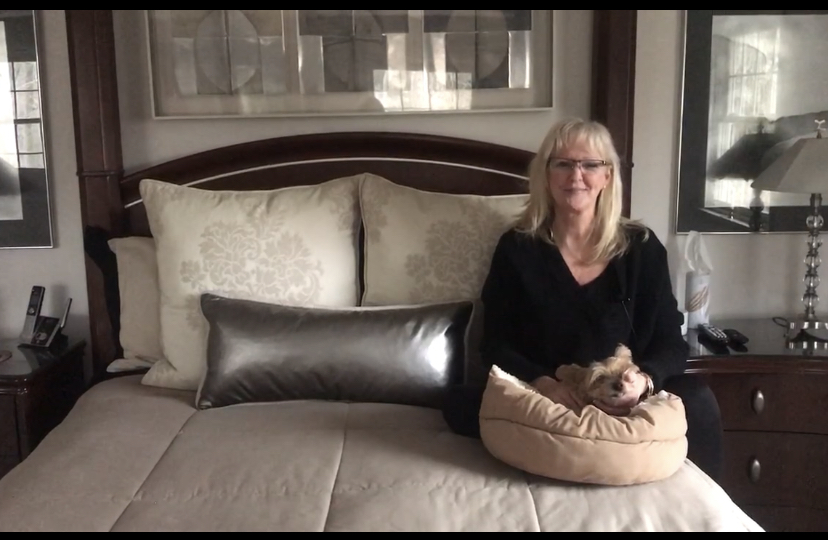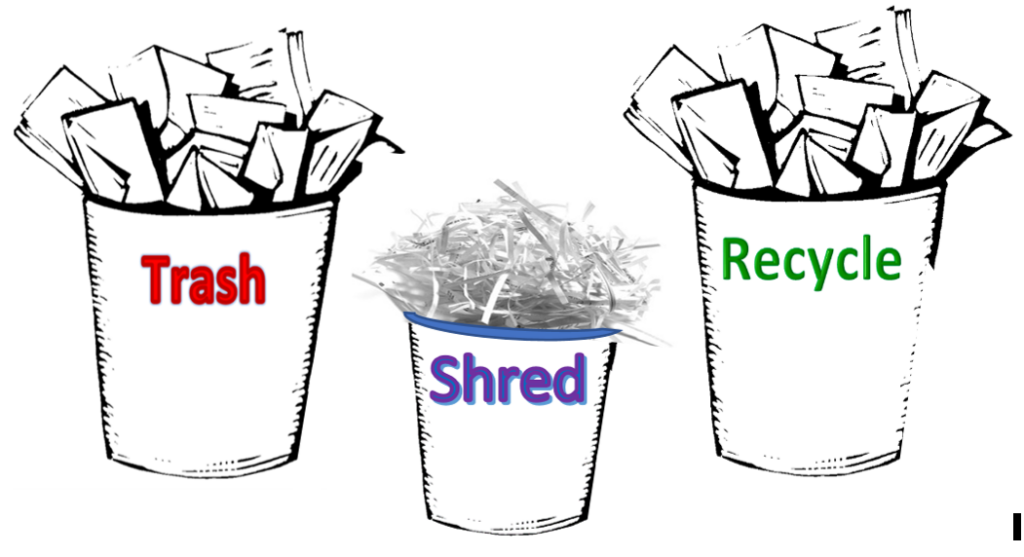As we head into a new month, continued stay-at-home living in most states, with the kids out of school, and a large percentage of the workforce working from home, most of us are starting to wonder just how much longer we can survive through this pandemic. This downtime has been a blessing for some and a curse for others, and right about now, I bet most of you are struggling with staying busy, maintaining a routine and downplaying anxiety. If you have kids, you might be pulling your hair out amidst boredom, complaining and fights. In my house, we have had high highs and low lows. We have moved almost daily from amazing family moments of laughter and warmth to stressful bouts of fighting and discontent. This rollercoaster might look a bit different for each family, but I think there are some things we can do right now to combat the negatives and approach each new day with a sense of accomplishment and hope. None of this is new, but I know that I personally enjoy the timing of a good reminder when I need it the most.
The main thing that I have been working on lately is to be intentional and own my perspective. We all get bad thoughts occasionally, and with the scary things that the media is sharing, it’s no surprise that most of us are being hit with thoughts of worry, anxiety, and fear. It’s human to feel these things, and we shouldn’t necessarily fight them off when they show up. They are sometimes there to warn us against a real danger or protect us from something that might be about to happen. On the flip side, they can also be brought about or intensified by our imaginations or fears, generated from negative experiences in our past. Owning your perspective involves allowing all thoughts to enter and float by, analyzing them to obtain any useful information as they move, and letting them continue their journey out of your brain. Follow up with a positive affirmation, take a step forward anyway, and change the dynamic. The key for me has been to let the thoughts go. Don’t hold onto them, don’t brew over them, and don’t go to bed at night thinking about them. Instead, read a good book, listen to a motivational podcast, pray with intention, or call up a friend or family member to talk about something else. Simply dismissing a thought can feel easier said than done, but I have found that the magic is just as simple as distracting yourself and replacing the thought.
For the first few weeks after the schools closed, my family and I were all sick, so our lives resembled something like those of a pack of wild dogs, scrounging for food and doing whatever needed to stay alive. I joke, but it felt a bit like complete chaos. As we are healing, we are picking up the pieces, getting the laundry done and assessing the inventory of our pantry. Now is the time to reassess the state of your own household and determine things like what supplies are needed, how schedules will change, and who will be responsible for required household tasks. Reinventing and implementing a routine is key for feeling like you have some control over your situation. If you use a family command center or large calendar, erase the scheduled soccer practices and instead schedule a time for things like school or professional work, exercise, chores and free time.
As you acclimate to your family’s new routine, don’t forget to relax and give yourself some grace in this process. Most of us have never lived through a pandemic like this, and it has literally upheaved our lives in a matter of weeks. Most of us have never been trained to navigate in this time, and we are all in the process of figuring things out as we go. If the dishes are dirty and the laundry is piled up, it’s okay. If the kids are not yet in a home school routine, they will survive. If you are using tissues because the toilet paper ran out, everyone will still be fine. Take a deep breath and remember that you are smart, capable and blessed. If a routine or schedule doesn’t work out as you envisioned, change it. The sky will not fall, and you WILL go on to live another day.
I certainly don’t claim to be a therapist or guru in the art of living, but I can confidently claim the title of a real wife, mom, neighbor and professional who is also learning to navigate this strange time right alongside the rest of you. I am finding that readjusting my perspective to focus on the positive, continuing forward momentum, resuming a routine for my family, and giving myself the grace to show up in whatever capacity that I can bring to each day is helping to make great, slightly sweetened lemonade out of this batch of sour, slightly bruised up lemons lying in front of us.


As Professional Organizers, we spend most of our time helping clients declutter and organize their spaces. But, with the events that have been unfolding over the past few weeks with the coronavirus, change has been thrust upon us. Some of us may be annoyed or feel inconvenienced by this change. Others may feel down right scared by all the uncertainty of the situation. Wherever you fall on that spectrum, figuring out how to adjust our daily lives to deal with the new restrictions can be overwhelming or stressful. To support you through this difficult time, we’ve put together some organizing suggestions to help you manage under these new circumstances.
We all want to make sure we have enough food and cleaning products to take care of ourselves and our families while we are being asked to self-quarantine and engage in social distancing. And while we support your need to have enough food; we urge you to think strategically about what you’re bringing into your space. How much milk will your family drink in a 2-week period? How many times will they tolerate eating mac n’ cheese in 2 weeks?
Also think about where you’re going to store the items you bring into your home. Where will you put the extra 30 rolls of toilet paper? This might be a good time to look through your cabinets and get rid of expired products to make space. If you still don’t have room in your cabinets or pantry, you may need to consider other options, like storing items in another room. That three-shelf bookcase with unread books might be the perfect spot for your extra canned goods.
With the steady increase of people testing positive across the country, many of us have been asked to work from home. Many schools have closed, and children are switching to online learning. This can create a challenging situation for parents, especially when everyone may need their own space to take that conference call or listen to their teacher’s online lesson.
Some are fortunate to have a dedicated office space at home, but what if you don’t have that space and both parents are working from home? What if you have multiple kids who need to complete online schoolwork? What makes the most sense for your family? Can the kids do their school lessons in their bedroom? Can you use your dining room as an office? Do you need to alternate schedules? Can your partner can use the office in the morning, and you use it in the afternoon? Or, they use it today and you use it tomorrow? Will your employer let you work evenings while your partner works during the day so someone can tend to the little ones? If multiple family members need to work in the same room or space, perhaps use headphones or ear buds to reduce background noise. It may take a bit of trial and error until you find a setup that works for your family, however, a little bit of planning and organizing can go a long way to reducing stressful events throughout your workday.
If the answer is yes, you’re certainly in good company. According to recent research, people touch their phones an average of 2,617 times per day. Tally up the hours we’re projected to spend on social media apps over a lifetime and the sum comes to a whopping 5 years and 4 months. (To put that in perspective, it’s 36% more time than any of us spend eating and drinking.) And don’t even get me started on the time we spend on our laptops and tablets.
If we don’t use our devices effectively, everything we’re gaining in convenience is outweighed by the frustration and anxiety it causes, not to mention the lost time. What’s unnecessary? How many clicks does it take you to find something? Are your precious memories and photos backed up? Is your data transparent across family members so that decisions can be made faster and easier? All of these things add up to our daily dose of digital frustration.
Lately, I’ve been working with a lot of clients who feel inefficient when it comes to their devices. It is no surprise that while we all carry around these “necessary evils”, we don’t always use them in the most optimal way.
Think about:
There’s no denying it, technology is always changing. If you choose to use technology strategically and invest in the proper tools you will undoubtedly save time, feel more productive and be able to unplug! (Now that’s a whole other topic)…

Well, guess what? I’m not. So when I goof up, I smile and say in a very poised and charming manner “I’m showing my humanity.” Then I’m over it.
As our businesses grow, our lives sometimes feel complicated and we feel conflicted because we are pulled in too many directions all at once. We stress about how we are going to manage to accomplish everything on our “To Do” lists that just keep getting longer and longer.
We sometimes struggle to keep our homes and home offices in order and to find enough time to rest and to spend with our families and our friends. We help our clients simplify their lives. Perhaps we need to follow our own advice and simplify our professional and our personal lives.
To follow through with your good intentions you need to:
To achieve your goal, you need to:
When our prospective clients are hesitant to commit to their first session or when our current clients become discouraged by the enormity of their project, we tell them to close their eyes and visualize how good it will feel when they have achieved their goal.
Let’s slow down and practice what we preach. Close your eyes and visualize how good it will feel after you have simplified one aspect of your life or one area of your home or home office.

I remember when my mother used to nag me to make my bed. I remember her saying, “you can go when your bed is made.” I would come up with a hundred reasons why it was a pointless task but perhaps there was a method to her motherly madness.
We spend approximately one-third of our lives in our bedrooms. And, it has been proven that the appearance of our bedroom has an overall affect on our mood and our productivity.
Our bed is the most dominant feature in our room. A made bed creates a positive vibe and immediately gives us a feeling of accomplishment. According to the National Sleep Foundation survey, a made bed also contributes to healthier sleep habits and better rest. In addition to increased productivity, bed makers also enjoy lower stress levels, improved moods and tidier homes.
Admiral William McRaven spoke about the transformative power of the daily bed making habit at the University of Texas commencement in 2014. It has since gone viral with over 10 million views and has been referred to by some of the worlds best thought leaders. He states “If you want to make a difference in the world, start by making your bed.” He said in part, “if you make your bed every morning, you will have accomplished the first task of the day. It will give you a small sense of pride and will encourage you to do another task and another and another. By the end of the day, that one task completed will have turned into many tasks completed. Making our bed will also reinforce the fact that little things in life matter.” I just love this: https://www.youtube.com/watch?v=jflUvxQLkgs
Since his commencement speech, Admiral McRaven published Make Your Bed: Little
Things That Can Change Your Life…And Maybe the World , a
#1 New York Times Bestseller.
Thanks mom, I suppose you had a point. Having an organized living space makes all the difference. I make my bed ever morning…and this small task has made the rest of my day feel infinitely more together.
I hope you will agree!
We all have too much paper in our lives. Diane, who is the business manager at RieOrganize! tells the following story:
“I have always had a fairly high tolerance for paper clutter before I reach my limit and, even then, it’s often not a conscious decision to sort through everything – I just start small and then usually keep going. The other day was one of those days. Although I missed being outside on a beautiful day, I opened the windows and just applied myself. The reward? Being able to sit back, that night, and look around at so many cleared off spaces with a sense of calm. AND I reaped the side benefit of finding two things for which I had been searching!”
Mail and other paper is a huge source of clutter for everyone. Every day your mailbox is full of paper, and 90% of it is probably useless to you.
Review the mail you get and look for opportunities to switch to paperless billing or automatic payments. You’ll eliminate the possibility of losing the electric bill in a pile of mail, plus you’ll have one less piece of mail coming to your house in the first place.
It’s important to have a system for processing mail. You know it’s coming every day, so figure out a system where you can sort it right away. Glance through the mail on your way back from the mailbox. Then when you’re in the house, toss junk mail in the recycle bin (or shredder if it includes personal information) and take immediate action on anything else.
Want to stop getting some of that junk mail altogether? Check out this resource from the Federal Trade Commission on ways to opt out of prescreened credit card offers, telemarketing calls, and other direct mail marketing.
WHAT TO KEEP AND WHAT TO TOSS?

Keep:
You should keep your tax records safe and secure, whether they are stored on paper or electronically. The same is true for any financial or health records you store, especially any document bearing Social Security numbers.
Keep:
Keep copies of your tax returns and supporting documents for at least seven years. Remember to keep records about property you own for seven years after the year in which you no longer own the property. This time frame allows you to file a claim for adjustment in cases of bad debt deduction or a loss from worthless securities. Always check with your tax advisor for further clarification and updates in tax regulations as they change every year.
Toss:
Dispose of old tax records properly. Never toss paper tax returns and supporting documents into the trash. Because of the sensitive nature of this data, the loss or theft of these documents could lead to identity theft and have an economic impact. These documents contain the Social Security numbers of you, your spouse and dependents, old W-2 income and bank account information. Therefore, your federal and state tax records, as well as any financial or health records should be shredded before disposal.
Toss:
Lots of mail looks like it’s official and even says “keep this for your records”, but sometimes you really don’t need to if the same information can be found online. If you bank online, you don’t need to keep the monthly paper statements since you can access them through your online bank account. You should reconcile your account before shredding the statements, but you don’t need to file and store that paper indefinitely. The same can be done for paper bills, but if you took our tip above, you’ve enrolled in autopay and paperless billing and don’t have to worry about paper bills anymore.
Not all of us can be as diligent and apply ourselves as easily as Diane did, so if you need help sorting through your clutter, contact an organizer. For a list of NAPO organizers, click here